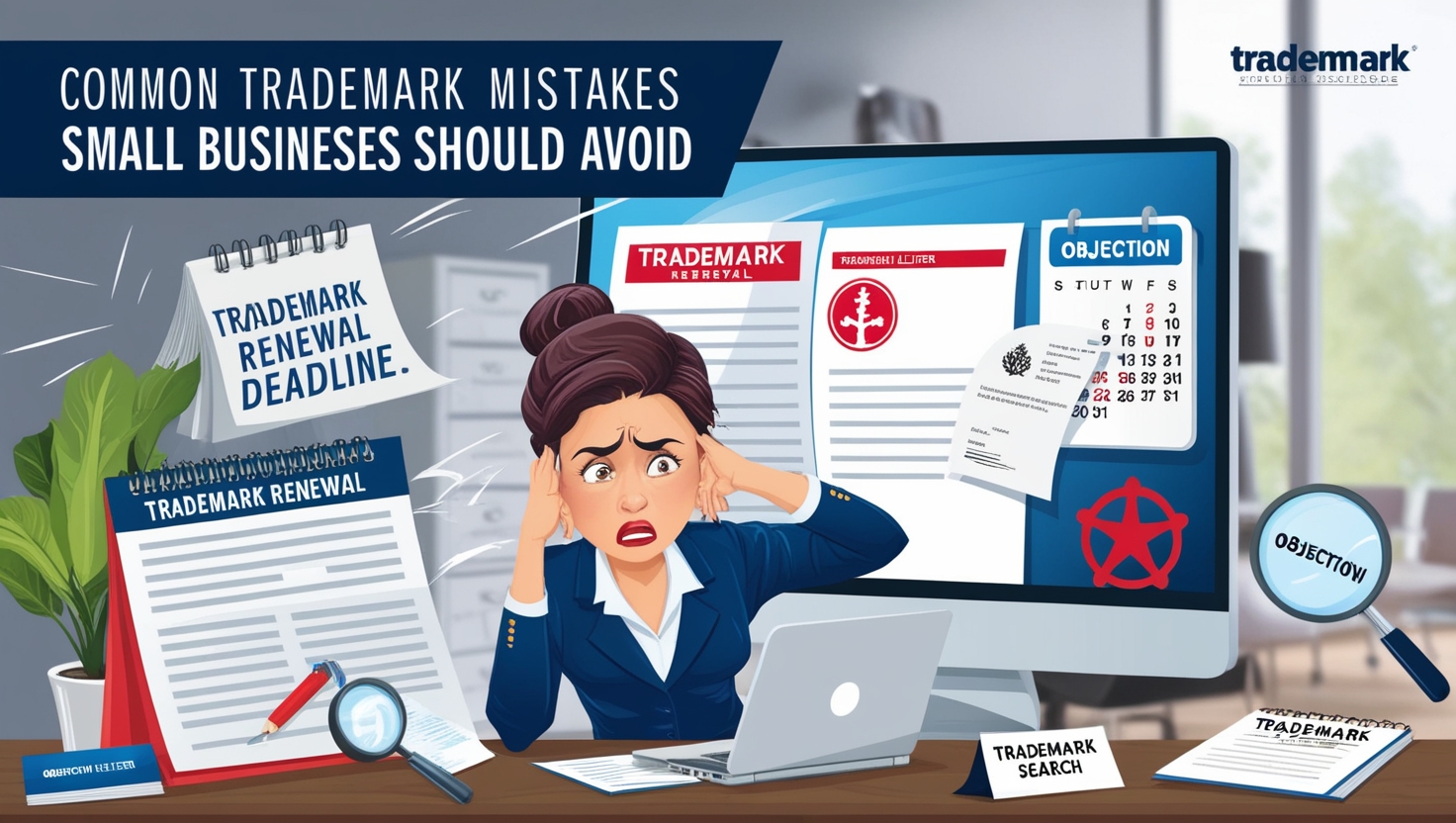Trademarking is a critical process for protecting a business’s identity and intellectual property, especially for small businesses. Trademarks distinguish your brand from others, ensuring that no one else can use your unique brand name, logo, or other identifying marks without your permission. While the importance of trademarks is well-recognized, many small businesses make critical mistakes during the trademark process, often leading to costly legal disputes or the loss of trademark rights. Understanding these common errors can help small businesses secure their brand properly from the start.
One of the most common mistakes small businesses make is neglecting to conduct a proper Trademark Search before applying for trademark registration. A trademark search is essential because it allows you to identify whether someone else has already registered a similar mark. Failing to search thoroughly can lead to a trademark objection if your application is too close to an existing registered mark. When a trademark objection occurs, it can delay the registration process or even result in the rejection of your application altogether.
Another mistake that small business owners frequently make is misunderstanding the scope of a trademark. Many believe that once they obtain a trademark registration, their rights automatically extend across all goods and services. However, trademarks are granted for specific categories or classes. This means that if you register your brand for clothing, for example, you may not automatically have rights over your brand name in other categories such as food or technology. To avoid this, it is essential to register your trademark in all the relevant categories that your business operates in or might expand into in the future.
Small businesses also often overlook the importance of trademark renewal. A trademark registration is not permanent; it needs to be renewed periodically to maintain protection. If you fail to renew your trademark on time, it will lapse, leaving your brand vulnerable to infringement. Trademark renewal timelines vary, but in most jurisdictions, a renewal is required every 10 years. Many small businesses, particularly those that are growing fast and focusing on expansion, forget this crucial step. Missing the renewal deadline can cost a business its exclusive rights to the trademark, and re-registering the same mark can be a lengthy and expensive process.
Another common mistake revolves around the improper use of a trademark. Once a trademark is registered, it must be used correctly and consistently. For example, if you register a logo as your trademark, any variation in its usage, such as altering its color scheme or design, may not be protected under the original registration. This is where maintaining brand consistency is critical. Your trademark should be used in the exact format in which it was registered. Failure to do so could weaken your claim to the trademark and open the door to competitors using something similar.
Trademark licensing is another area where small businesses can stumble. Licensing allows another entity to use your trademark under specific conditions, which can be a great way to expand your brand presence. However, if a trademark license is poorly drafted or doesn’t clearly define the terms and conditions, it can lead to disputes. Always ensure that your trademark license agreements are comprehensive, covering aspects such as geographical limitations, quality control, and royalty payments. Additionally, failure to actively monitor the use of your licensed trademark by third parties can dilute your brand. This is why it’s essential to set clear guidelines and conduct regular checks on how your trademark is being used.
Responding inadequately to a trademark objection is another error small businesses often make. If your trademark application faces an objection, this doesn’t mean your registration is doomed. However, it does require a prompt and well-crafted response. Many business owners panic and either ignore the objection or fail to respond in a timely manner. Objections can range from administrative issues to conflicts with existing marks. Hiring a legal expert to address the objection can often save the application. Failing to respond correctly or within the required time frame can result in the rejection of the application, costing time and resources to start the process over again.
Small businesses also make the mistake of assuming that obtaining a trademark in one country automatically protects their brand globally. Trademarks are territorial, meaning that registering a trademark in one country doesn’t grant you protection in another. If you plan to expand your business internationally, it is important to apply for trademark registration in each country where you intend to operate. Global expansion can be an exciting time for a small business, but failing to protect your trademark in new markets can lead to infringement issues, brand dilution, and loss of market share.
One of the most critical mistakes small businesses make is attempting to navigate the trademark process without professional help. Trademarks are legal tools, and the registration process can be complicated, especially when you factor in trademark searches, objections, and renewals. While some business owners opt to file for trademarks on their own to save costs, this can lead to serious mistakes that might result in the rejection of the application or leave the trademark vulnerable to disputes later. It is often more cost-effective in the long run to consult with a trademark attorney or an intellectual property expert who can guide you through the process, ensuring that your trademark is secure and valid.
Finally, some small businesses underestimate the power of their trademark. A strong trademark can add significant value to a business by establishing brand recognition and customer trust. However, this value can be compromised if the trademark is not properly protected. Even after a trademark is registered, businesses should remain vigilant about protecting it from infringement. This includes monitoring for unauthorized use of the trademark and taking legal action when necessary to enforce your rights.
In conclusion, trademarks are an essential asset for small businesses, but navigating the trademark process can be fraught with potential pitfalls. From conducting a proper trademark search to avoiding missed trademark renewal deadlines, it is important to understand the common mistakes that can undermine your brand’s protection. By being aware of these issues and seeking professional assistance where needed, small businesses can avoid costly errors and ensure their trademarks effectively safeguard their brand in the marketplace. Whether it’s managing a trademark objection or drafting a trademark license, the goal should always be to protect your brand’s identity and value for the long term.
Source URL: https://milyin.com/701683/




